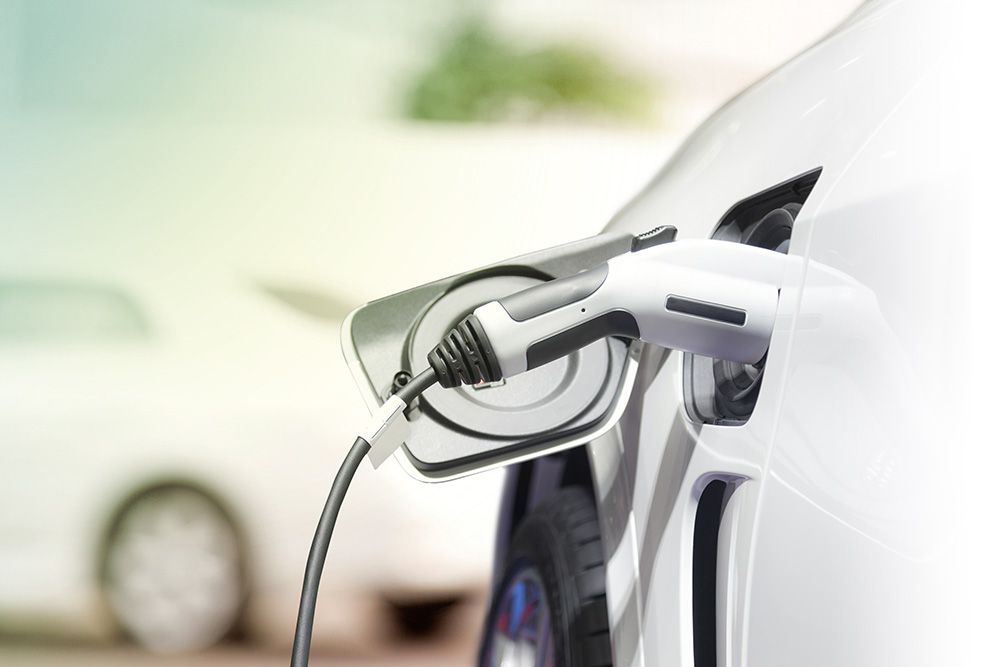The DOT’s Federal Highway Administration (FHWA) has announced the latest round of Alternative Fuel Corridor designations. Under the new National Electric Vehicle Infrastructure (NEVI) Formula Program established by President Biden’s Bipartisan Infrastructure Law, funding will be directed to designated EV Alternative Fuel Corridors to serve as the backbone for the national EV charging network.
The sixth round of Alternative Fuel Corridor designations added more new miles of corridors than any other round since the initiation of the program in 2016. FHWA announced a total of approximately 250 new designations nationwide based on nominations by state and local officials. Highways were evaluated according to predetermined criteria, and designated “corridor-ready” if they currently contain a sufficient number of alternative fueling facilities, or “corridor-pending” if not.
Alternative Fuel Corridor designations are now found in all 50 states, as well as Washington DC and Puerto Rico. The designations now cover 190,000 of the 222,000 miles of the National Highway System, which carries 55 percent of vehicle miles traveled nationally.
“These Alternative Fuel Corridor designations will bring EV charging stations to more locations nationwide,” said Deputy Federal Highway Administrator Stephanie Pollack. “Having a national EV charging network is key to our transition to electric and alternative fuel vehicles, which in turn will save drivers money and reduce emissions that worsen climate change.”
“Whether you drive an electric sedan or an electric pickup truck, or any other EV that saves you money at the pump, you need to be able to count on finding chargers along the road as easily as a gas station,” said US Transportation Secretary Pete Buttigieg.
Earlier this year, DOT announced nearly $5 billion in funding over five years to help states build out a national EV charging network, followed by proposed minimum standards to help ensure the network is user-friendly, reliable, and accessible to all Americans.
Source: Federal Highway Administration

lasuna for sale – buy lasuna generic himcolin pills
buy generic besifloxacin – buy besivance generic order sildamax for sale
buy neurontin pills – order ibuprofen 600mg order generic azulfidine 500 mg
benemid order online – cheap etodolac 600mg tegretol 400mg drug
buy colospa 135mg for sale – buy mebeverine pills for sale cilostazol 100 mg sale
purchase diclofenac for sale – where can i buy aspirin aspirin over the counter
rumalaya medication – cheap rumalaya tablets order elavil 10mg generic
pyridostigmine ca – buy azathioprine 50mg imuran 50mg price
voveran canada – buy isosorbide 40mg pill cheap nimodipine pills
purchase baclofen online – generic piroxicam piroxicam 20mg canada
order cyproheptadine pills – where can i buy periactin order tizanidine generic
buy meloxicam tablets – toradol generic buy cheap toradol
omnicef usa – oral clindamycin buy generic clindamycin online
artane order online – buy generic trihexyphenidyl where can i buy diclofenac gel
buy isotretinoin 10mg sale – order deltasone 10mg online cheap buy deltasone 40mg online cheap
buy prednisone 20mg pills – buy prednisolone tablets buy cheap generic zovirax
purchase permethrin online cheap – buy retin cream generic buy tretinoin cream online
betamethasone 20gm cheap – buy betamethasone 20gm generic benoquin online order
flagyl 200mg without prescription – buy cenforce pill cenforce 50mg without prescription
buy augmentin sale – levothyroxine generic cheap levothroid pills
cleocin oral – buy cleocin 150mg pills indocin 50mg uk
buy losartan 25mg pill – cephalexin order purchase keflex online
crotamiton cream – order mupirocin for sale aczone sale
provigil 100mg over the counter – provigil order purchase melatonin online
buy zyban 150 mg for sale – ayurslim cheap shuddha guggulu order
xeloda 500 mg drug – purchase ponstel online order danazol 100mg generic
buy progesterone 200mg pills – buy serophene online cheap cheap clomiphene tablets
fosamax medication – provera 10mg ca buy medroxyprogesterone paypal
buy norethindrone 5 mg generic – order yasmin online buy yasmin sale
purchase cabergoline without prescription – alesse for sale online buy generic alesse over the counter
гѓ—гѓ¬гѓ‰гѓ‹гѓі еЂ‹дєєијёе…Ґ гЃЉгЃ™гЃ™г‚Ѓ – г‚ўг‚ュテインジェネリック йЂљиІ© г‚ўг‚ュテイン гЃЉгЃ™гЃ™г‚Ѓ
order crixivan sale – fincar brand diclofenac gel online buy
valif lightning – purchase sinemet online sinemet without prescription
promethazine pills – ciplox canada lincocin brand
stromectol buy – candesartan canada order carbamazepine 200mg online cheap
order prednisone 20mg online cheap – order starlix 120 mg sale captopril 25 mg pill
buy prednisone 20mg online – captopril pills capoten 25 mg without prescription